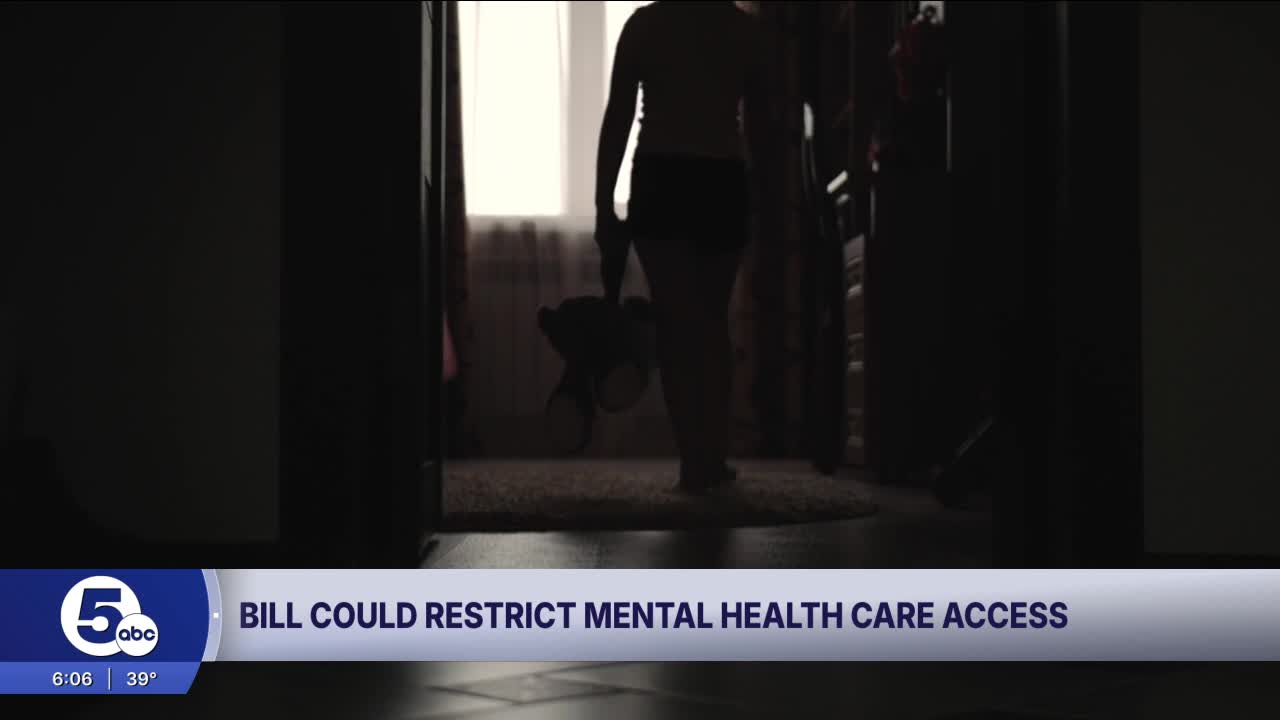COLUMBUS, Ohio — Ohio violence prevention advocates worry that teens who have been sexually abused would have to get parental consent to get emergency and temporary mental health services under proposed legislation.
Some of the most heinous crimes have the most vulnerable victims.
"I've responded to child sexual abuse victims at 2 a.m. in the hospital," Emily Gemar, with the Ohio Alliance to End Sexual Violence, said. "I've held their hand throughout the night."
Thousands of kids in Ohio are sexually abused per year, she said. State data shows the majority of all reported sexual assaults happened to children under 18.
But many cases go unreported, Gemar said.
"It takes some time to build trust with that counselor, that mental health provider, to allow for a setting where somebody feels like they can disclose what's happened to them," she said.
And she was thrilled when Governor Mike DeWine expanded his crisis mental health program. When a child calls the 9-8-8 hotline, they get emergency access to support — free of charge.
The MRSS program also lets teens 14 and older get temporary help, including six weeks of counseling, without consent from a parent or guardian.
Gemar said that's important in sex abuse cases.
"We know that anywhere from 35% to 93% of child victims 1. knew their perpetrator, and 2. that perpetrator was a parent or caregiver," she said.
But grandfather and conservative activist John Stover said the program keeps families in the dark.
"There is no situation whereby a parent should not be notified that their 14-year-old is dealing with mental health issues," Stover, who runs the organization Ohio Value Voters, said.
Some Republican state lawmakers agree with him.
House Bill 172, sponsored by state Rep. Johnathan Newman (R-Troy), would require parental approval for minors to get the temporary support. It repeals the current state law allowing for this care.
"We should all want to see students who suffer with mental health struggles receive the help they need," Newman wrote in his testimony for the bill's first hearing. "This bill seeks to do that, maintaining that the students’ parents cannot be left out of the picture because the parents are the child’s authority and most important and essential part of the student’s recovery."
His bill is meant to mirror language from the last General Assembly's H.B. 8, legislation requiring schools to notify parents if the child identifies as LGBTQ+ or has a mental health issue.
"You cannot have two unique programs where parents are notified under one circumstance if it's in the school, and they're not notified if it's another circumstance outside the school," Stover said.
Stover said the bill wouldn't stop abusers from being caught. He said mandatory reporting requirements would go into effect — mental health professionals would have to tell police, who would then investigate the parents.
"There is no argument there," Stover said.
But Gemar warns cases don't always work like that.
"If a 14-year-old is being raped by a parent, they would have to ask the parent who is raping them for consent to go see a clinician," Gemar said. "There could be punishment, there could be threats or more physical or sexual abuse that occurs because of that."
If the bill becomes law, she said, that is a door closed for teens to be able to safely seek help.
The Ohio Domestic Violence Network is expected to testify against the legislation, along with Gemar, this week.
If you or anyone you know is in an unsafe situation or needs support regarding sexual or domestic violence, you are not alone. There are plenty of resources available.
If you are in immediate danger, please call 911.
Call the statewide sexual violence helpline at 1-844-OHIO-HELP (1-844-644-6435) or your local rape crisis center, which can be found by clicking here. Additional financial and informational resources can be found on ODVN's website here.
The national hotline for domestic violence can be reached by texting START to 88788 or by calling 1-800-799-SAFE (7233). During ODVN's business hours, you can call them at 1-800-934-9840 or 614-781-9651.
For a list of programs and shelters in Ohio, please click here.
Call 988 for the national and statewide crisis and suicide hotline.
Follow WEWS statehouse reporter Morgan Trau on Twitter and Facebook.






